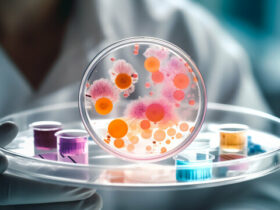United States: In the latest finding, it is revealed that people with HIV experience more heart disease even if their diseases are not causing any symptoms in relation to their infection, as per the latest reports.
Moreover, people in their middle ages and who have HIV are more susceptible to receiving early detection of signs related to heart problems. It is caused by the presence of thicker blood vessels, which ultimately poses pressure on the heart.
What do the studies reveal?
Dr. Ahmed Gharib, the senior researcher and director of the Biomedical and Metabolic Imaging Branch of the National Institute of Diabetes and Digestive and Kidney Diseases in Bethesda, MD, said, “Prior studies have shown cardiovascular disease in persons living with HIV, however not at such an early stage,” as US News reported.
The recent study also marked the effectiveness of various drug therapies in improving life longevity in those with HIV. It also showcases that the health problems not linked to AIDS have been becoming more common.
The detailed findings of the study were published in the journal Radiology: Cardiothoracic Imaging on April 4.
How common is HIV in people?
The World Health Organization put the number of people with HIV at 39 million globally. Compared to 2010, current analysts estimated that the global number of AIDS-related deaths has decreased by 51 percent, giving a spiritual boost to the human race.
Unfortunately, some of the newer studies have discovered that patients with HIV put their lives at four times higher risk of sudden death during a heart attack than the general population, according to summaries of their work.
Understanding HIV and heart disease relation – Study
The researcher intended to gain further knowledge regarding this risk of heart disease, whereby recruited to participate in their research 74 adults who were living with HIV but had no evident heart disease.
The referred individuals, however, were compared to a group of 25 counterparts who neither had AIDS nor heart disease.
According to US News reports, each studied subject went through an MRI to measure the thickness of the blood vessels in his/her heart, as well as an echocardiogram to evaluate their heart function.
It was demonstrated that HIV-infected patients had vessels of the heart that were thicker as compared to the control group. Such thick vessels were found to exacerbate the poor left ventricular diastolic function, one of the lower chambers of the heart, and also led to an impairment of the left ventricle wall.
The oxidation of the vessel lining can then turn to hardening, which may prevent the heart from functioning properly, according to the Cleveland Clinic.
Moreover, as per the researchers, Didanosine, which is one of the drugs, is linked with the thickening of heart arteries.
Khaled Abd-Elmoniem, the lead researcher and a staff scientist in NIDDK’s Biomedical and Metabolic Imaging Branch, said, “The ability to detect early coronary artery disease in persons living with HIV and potentially prevent detrimental effects on the heart muscle is important.”
“This research shows the impact of HIV on developing subtle subclinical coronary artery disease and its effects on heart function,” added Abd-Elmoniem.
Moreover, the researchers have said that by diagnosing early signs of heart-related problems, healthcare officials would be able to prevent and protect their heart health.





